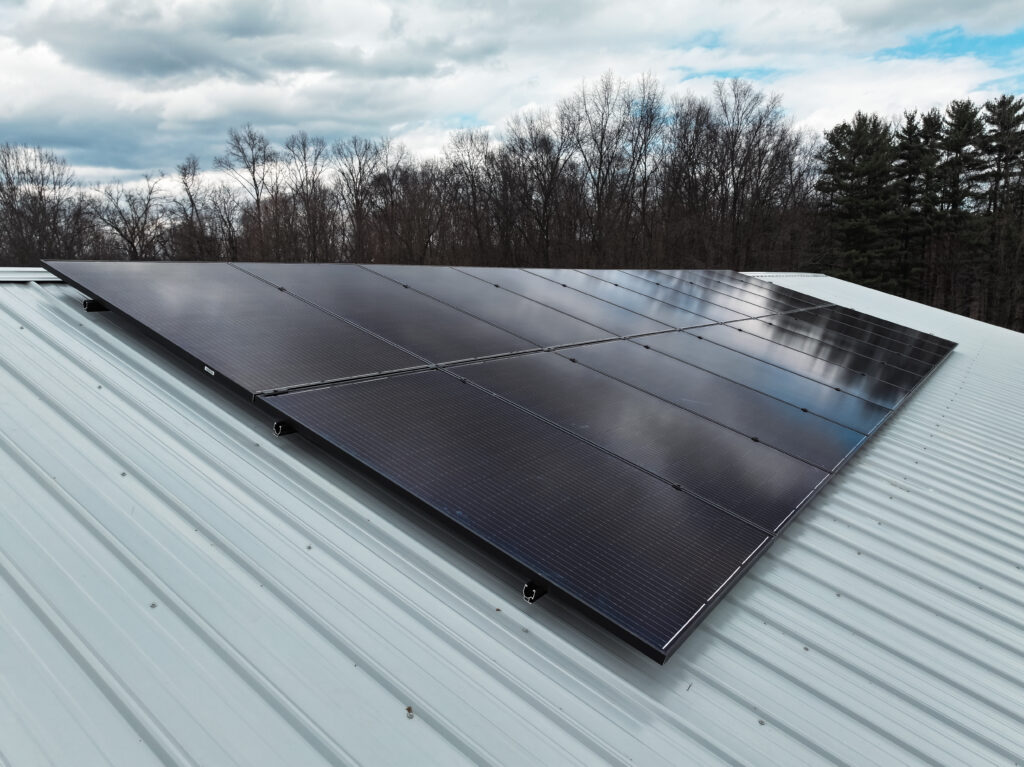OFF-GRID SOLAR SYSTEM
An off-grid solar energy system, also known as a standalone solar system, is a type of solar power system that generates electricity from sunlight and stores it for use in remote or isolated areas without connection to the electrical grid. This system provides energy independence and reliability, making it ideal for:
1. Remote homes or cabins
2. Rural areas with limited grid access
3. Islands or coastal communities
4. RVs or boats
5. Emergency backup power systems

Key Components of an Off-Grid Solar Energy System:
1. Solar Panels: Convert sunlight into DC (direct current) electricity.
2. Charge Controller/Smart Electrical Panel: Regulates the flow of energy from the solar panels to the battery bank and from the battery bank to pre-selected electrical circuits.
4. Inverter/Charger: Converts DC power from the battery bank into AC (alternating current) electricity, usable in homes and businesses.
4. Inverter/Charger: Converts DC power from the battery bank into AC (alternating current) electricity, usable in homes and businesses.
5. Mounting System: Secures the solar panels to the roof or ground.
6. System Monitoring: Tracks system performance, energy production, and battery state.
Benefits of Off-Grid Solar Energy Systems:
1. Energy Independence: Provides reliable, self-sufficient energy in remote or isolated areas.
2. Lower Energy Costs: Eliminates the need for grid electricity, reducing energy costs and reliance on fossil fuels.
3. Renewable Energy Source: Generates clean, sustainable energy from sunlight.
4. Increased Property Value: Installing an off-grid solar energy system can increase property value and appeal.
5. Low Maintenance: Solar panels require minimal maintenance and are designed to last for 25 years or more.
6. Backup Power: Provides a reliable backup power source during grid outages or natural disasters.
7. Flexibility: Can be designed to meet specific energy needs and expandable as energy demands increase.
9. Government Incentives: Eligible for tax credits, rebates, and other incentives that can help offset the upfront cost of installation.
10. Improved Quality of Life: Enhances overall quality of life by providing reliable, sustainable energy and reducing reliance on fossil fuels.
Overall, off-grid solar energy systems offer a reliable, cost-effective, and environmentally friendly solution for energy independence in remote or isolated areas.

